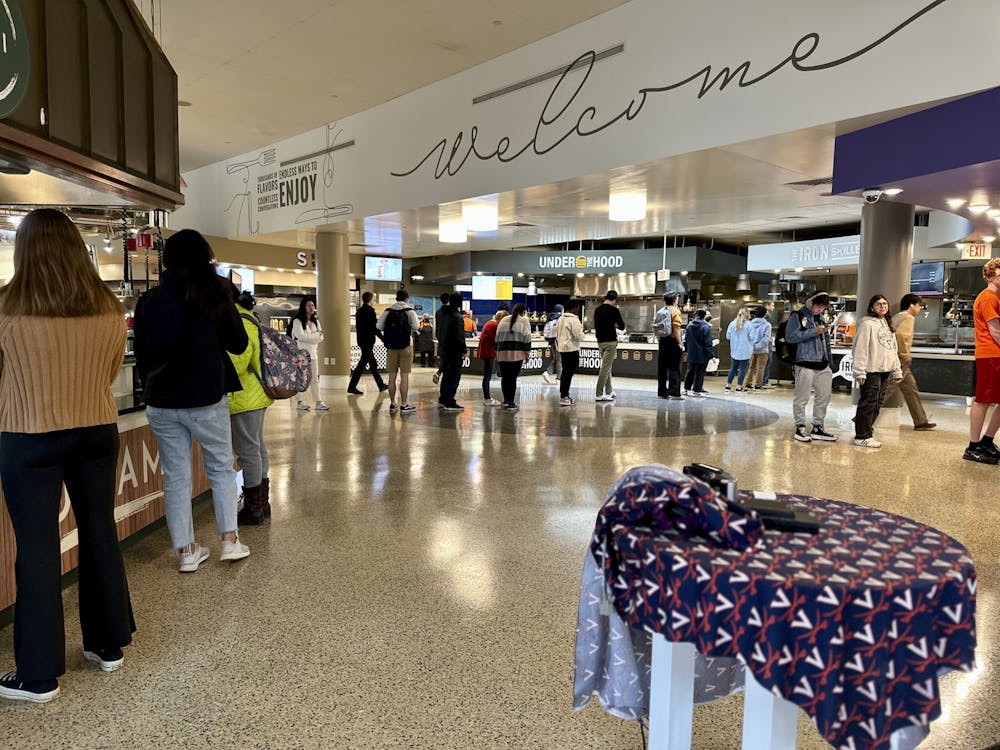U.Va. Dine has implemented a customized Ramadan ordering program that provides participating students with meal accommodations by allowing meal orders to be placed through Grubhub two to three days in advance, with an expanded pickup time between 5 p.m. and 10 p.m. The program has been met with mixed responses from participating students, including some who have cited low quality food.
In conjunction with the Office of Student Affairs, U.Va. Dine has taken student feedback into account to improve the program, which has been in place the last two years. Student Affairs is responsible for communication efforts on the program. U.Va. Dine also accommodates those with allergies and dietary restrictions through their meal accommodations. The menus were created using student feedback.
According to University Spokesperson Bethanie Glover, Student Affairs conducted a survey in February to gauge student interest in a Ramadan meal accommodation program. A total of 248 students indicated interest — an increase in students hoping to participate in the program from the previous year.
The Muslim Students Association has been working on accommodations and planning events for Ramadan since the period of observance first overlapped with the academic school year in 2018 — some of their efforts go beyond what the University has offered in the past. Muaaz Luqman, president of the Muslim Students Association and a fourth-year McIntire student, has been involved in the process of providing student input to improve these accommodations while on the executive board for the past two years.
“We’ve been able to get a lot of iftars sponsored outside of the ones dining are providing,” Luqman said.
The holy month of Ramadan involves fasting from sunrise to sunset, which means students often need to eat outside of normal dining hall hours. Suhoors are the morning meal to break fasts in the morning and iftars are the evening meal to break fasts at night — and both must be eaten while the sun is down. The meal accommodation program is to ensure all students celebrating Ramadan will have access to food during the month of celebration.
First-year engineering student Mohamed Elhawabri said he appreciates the University’s effort to accommodate students for Ramadan, but said he has had some negative experiences with the provided meals.
Elhawabri said he has received cold food and small portion sizes and that the quality of the food has been low. After receiving discolored dates and bananas, he decided not to eat the food because he didn’t think they were safe to eat.
“I kind of stopped ordering the Ramadan meals and I'm starting to order from the Corner, orders from GrubHub delivery which costs a lot of money,” Elhawabri said.
Elhawabri said the University has enough money to afford higher quality food for its students — especially those who are fasting the entire day and then need highly nutritious food at night.
Jared Hardy, marketing manager for U.Va. Dine, said in an email to The Cavalier Daily that their team has not formally received negative feedback regarding portioning or food quality. While approaching next year’s accommodations, U.Va. Dine intends to use the same process as this year to “fine-tune” the process.
“Our approach to next year's accommodations will be the same, focusing on our partnership with student groups to enhance a program that has already been a great success,” Hardy said.
First-year College student Mostafa Asad observes Ramadan and said that he believes that it is one of the University’s responsibilities to recognize the religious practices of students — including Ramadan — and provide adequate accommodations.
“I think that the meals that they provide are more than enough,” Asad said. “I can’t think of any other accommodations needed at the moment.”
In addition to these accommodations, the Muslim Students Association is holding events and seeking financial help from various alumni and donors.
“I realized that my true passion here at U.Va. was in making sure that I can help grow and lead the Muslim community on Grounds and even in Charlottesville, and I saw that there's definitely room to impact and room to give back through running for MSA board,” Luqman said.
Meal accommodations for students will be available through the holy month of Ramadan, which ends April 20.







